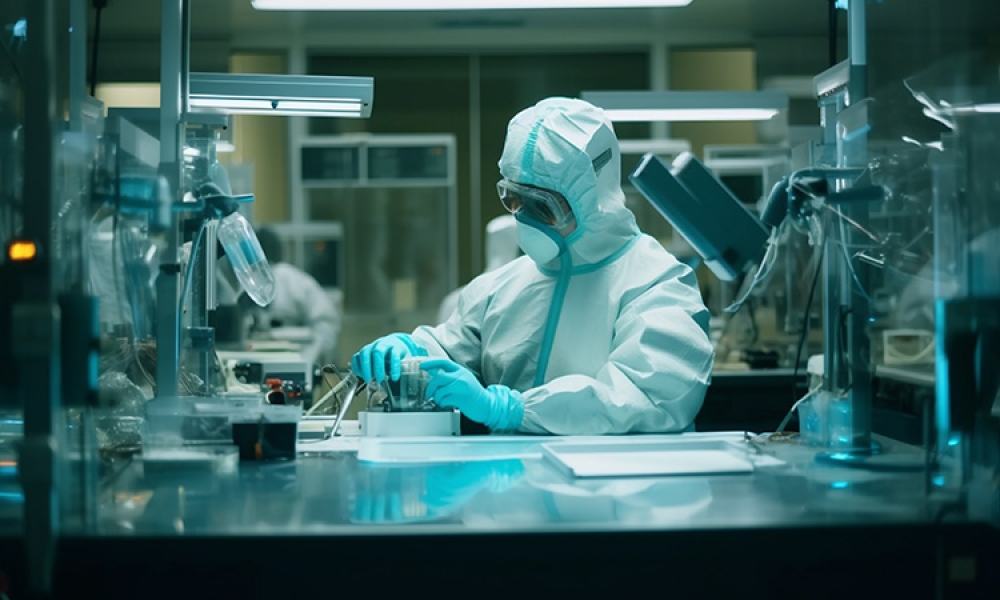Jim Grunwald and I, Eamon Judge, the ‘Agile Innovation in Lifescience and Manufacturing‘ Track Leads, are looking forward to welcoming you at spectacular education sessions at the 2021 ISPE Annual Meeting & Expo in Boston from 31 October – 3 November 2021. We have had a really difficult time choosing the content for the Agile Innovation stream, but hopefully the program that we have finalized will be both insightful and educational as you seek to learn about recent developments in the sector and reconnect with colleagues.
The program takes some of the sector’s innovations from the COVID pandemic. Also, it includes some industry improvement case studies of companies dealing with other therapeutic or process innovations such as advanced therapy medicinal products (ATMPs) and continuous processing.
Over the past decade, the adoption of Pharma 4.0™ technologies and the challenges of accelerating new therapies while meeting regulatory and business expectations for process robustness and reliability have driven new approaches in the industry. The first session on Monday, 1 November in the Agile Innovation Track will look at some of these responses and share the broader use of agile automation and data analytics to deliver more capable and reliable operations. The sector’s accelerated response to the COVID pandemic was enabled and sped up by these foundational innovations. In addition, the session includes a novel parenteral PAT case study that illustrates how the convergence of analytical and process technologies is delivering real value and ensuring a reliable supply of medicines to patients.

The timelines involved in introducing new therapies often require the creation of additional capacity while avoiding significant new capital investments. Maximizing the productivity of existing assets is key to that response, and the ability to reduce the time taken to complete cleaning and turnarounds adds significant cost-effective value. Similarly, faster product introduction can be enabled through standardization of quickly adaptable and adoptable single-use process components and their associated automation systems. The three presentations in the second Agile Innovation session on Monday afternoon will share real-world examples of companies delivering on those value-driven objectives.
Tuesday morning (2 November), the focus turns more directly to the responses to the pandemic: COVID has led to a spotlight focus on parenteral operations capabilities and capacity as the industry scaled up in an unprecedented manner to meet the need to inoculate billions of people. Leveraging and scaling technologies and adapting at speed to the emerging therapeutic and vaccine needs has driven a ‘barrier breaking’ mentality within companies. As illustrated by these three case studies, the results were spectacular. The presentations in this session will enable attendees to learn about agile and innovative approaches that are hopefully also applicable to other technology platforms.
Innovative ATMP treatments for patients have come a long way since the first human gene therapy clinical trial in the early 1990s. Since that time, over 3,000 clinical trials have been initiated, with a growing number of therapeutics approved by regulators worldwide addressing many complex and unmet needs. However, the technology platform is coming of age, and this session on Tuesday morning (2 November) shares some of the opportunities and challenges of bringing such processing to the next level. From developing and designing facilities and processes for personalized, single-patient treatments to the creation of uniquely agile quality management systems, the presentations in this session will focus on how the industry is responding to the ATMP challenge while remaining aligned with and influencing emerging regulatory guidance on such processing.
Continuous processing (CP) has long been heralded as a route to quote ‘cleaner, flexible and more efficient’ processing( Source : Dr. Janet Woodcock, FDA, AAPS Meeting, 2011). While significant progress has been made in realizing this objective in drug product manufacturing, as illustrated in recent ISPE FOYA Awards, progress on its application at a large scale in drug substance / API processing has lagged expectations. This session presents the experiences of two major pharmaceutical companies that have made significant investments in this area for both small and large molecule therapies. Their insights into the challenges of such processing and especially as to how the digital technologies inherent in Pharma 4.0™ can enable the CP vision will form an interesting and hopefully educational final session in the 2021 ISPE Annual Meeting & Expo Agile Innovation Track.
Apart from the presentations themselves, time will be allowed during every session to have audience engagement with our panelists in a general discussion and Q&A session.
We look forward to meeting you in Boston (or virtually, if the case may be) at this hybrid 2021 ISPE Annual Meeting & Expo.
Register Now!





